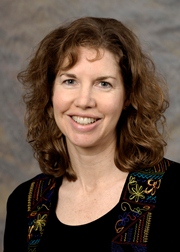Psychology faculty member earns state honor for community engagement

Paul Strand, associate professor of psychology at WSU Tri-Cities, won a statewide award for exemplary civic engagement by university faculty.
The Timm Ormsby Award for Faculty Citizenship is presented annually by Washington’s Council of Faculty Representatives. Nick Lovrich, WSU Regents professor in political science, won the honor last year.
Strand, who has been with WSU Tri-Cities for 17 years, studies the development of social skills and academic readiness in children, particularly those who are raised in culturally and linguistically diverse homes. He has testified before the state Senate Human Relations and Corrections committees on the evidence in support of his ideas.
He has focused on children from Spanish-speaking homes who struggle with shyness and anxiety in school; how these feelings contribute to both academic difficulties and teacher perceptions that a child has intellectual deficiencies; and how to help children, families and teachers overcome these barriers.



